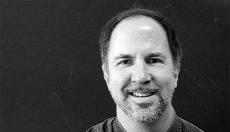Most Americans are aware of the dictum that we should be true to ourselves. In this short space, I will argue that the most fundamental dilemma in American society is a deep-seated tendency to collapse a distinction central to Aristotle’s thought, that between the “good man” and “good citizen.”
To the extent that we are motivated by the values and goals set down by the larger society, we are defining ourselves in terms of the standards of the “good citizen.” On the other hand, if we live more rather than less on the basis of a set of moral and spiritual values which transcend the dominant opinions of society and which help us realize our deepest ends as human beings simply, we are defining ourselves in terms of the “good man.”
Most of the greatest thinkers and prophets in Western civilization make balancing the two poles of this tension an integral component in living a good life. It is in assuming they are onto something I argue the near-universal American tendency to conflate our roles as members of political-economic society and our true self is the source of many of our basic problems and in particular the difficulty Americans and the Catholic university have in defining for themselves a spiritually robust notion of the good life.
The existence of a public philosophy which raises the dignity of the individual paradoxically also oftentimes leads to an abandonment of the true self in our society-the soul. This paradox has its origins in the particular and very intentional way the founders of modern politics defined the good life. This definition was to a great extent meant to alleviate the causes of religious conflict in Europe. Whereas pre-modern European civilization used institutional arrangements to support explicit moral and spiritual ends, the founders of modern political economy observed that when force was used to buttress belief claims about the highest ends of human life, violent conflict ensued.
Their solution was to make such claims a private matter and redefine the public understanding of morality in primarily economic and political terms, i.e. as material well-being and security. While some have argued that the American foundation is morally questionable because it does not actively support the moral and spiritual ends of the person, the radical freedom underlying American civilization constitutes a change of great moral and spiritual import for humanity. Our specifically spiritual and intellectual dilemma does not lie in the fact that our system does not institutionally promote the highest ends of human life. It lies in the misguided assumption by a great many American intellectuals in the 20th century that negative freedom is itself the highest good.
While freedom from force is central to the well functioning of the good citizen and makes society function well, the absence of coercion is not itself ultimate. Alone, such freedom does not enable us to live a deeply good life as persons. One of the consequences of the acceptance by our intellectuals of the utilitarian morality at the core of modern political thought is the tendency to equate any public discussion of the spiritual and moral ends of human life with force. The assumption that freedom is the highest good and the general conflation of persuasion and force has lead our country to a situation in which our intellectuals for the most part are either unwilling or unable to coherently articulate specifically moral and spiritual aspects of human life. Because the Catholic university in America is influenced by these same forces, it is not fulfilling its true purpose.
The university in the West was set up in part as a response to Socrates’ dictum that we not assume that the values of the larger society are synonymous with the true ends of human life. The Catholic university today more than ever needs to find within itself the resources to resist the overwhelming inclination at the core of American civilization to collapse the tension between the opinions of the surrounding culture concerning what is just and good, on the one hand, and the highest ends of human life, on the other. Instead of assuming that Americanism has all the answers to the questions of how to live well, administrators and faculty in Catholic universities have a moral and intellectual imperative to get clear on the fact that the utilitarian values of our political foundation are not able and were never meant to get us to our deepest ends as human beings.
When we acknowledge this anew, we need to strive to creatively and constructively articulate what those ends might be as well as the various means to them. By recultivating a sense of tension between the highest ends of the human person and the popular opinions concerning the same prevailing in American culture, thinkers in our culture generally and the Catholic university in particular can again coherently contribute to both the deepest good of the individual and the well-functioning of society.
Terence Hoyt is an assistant professor of philosophy.








